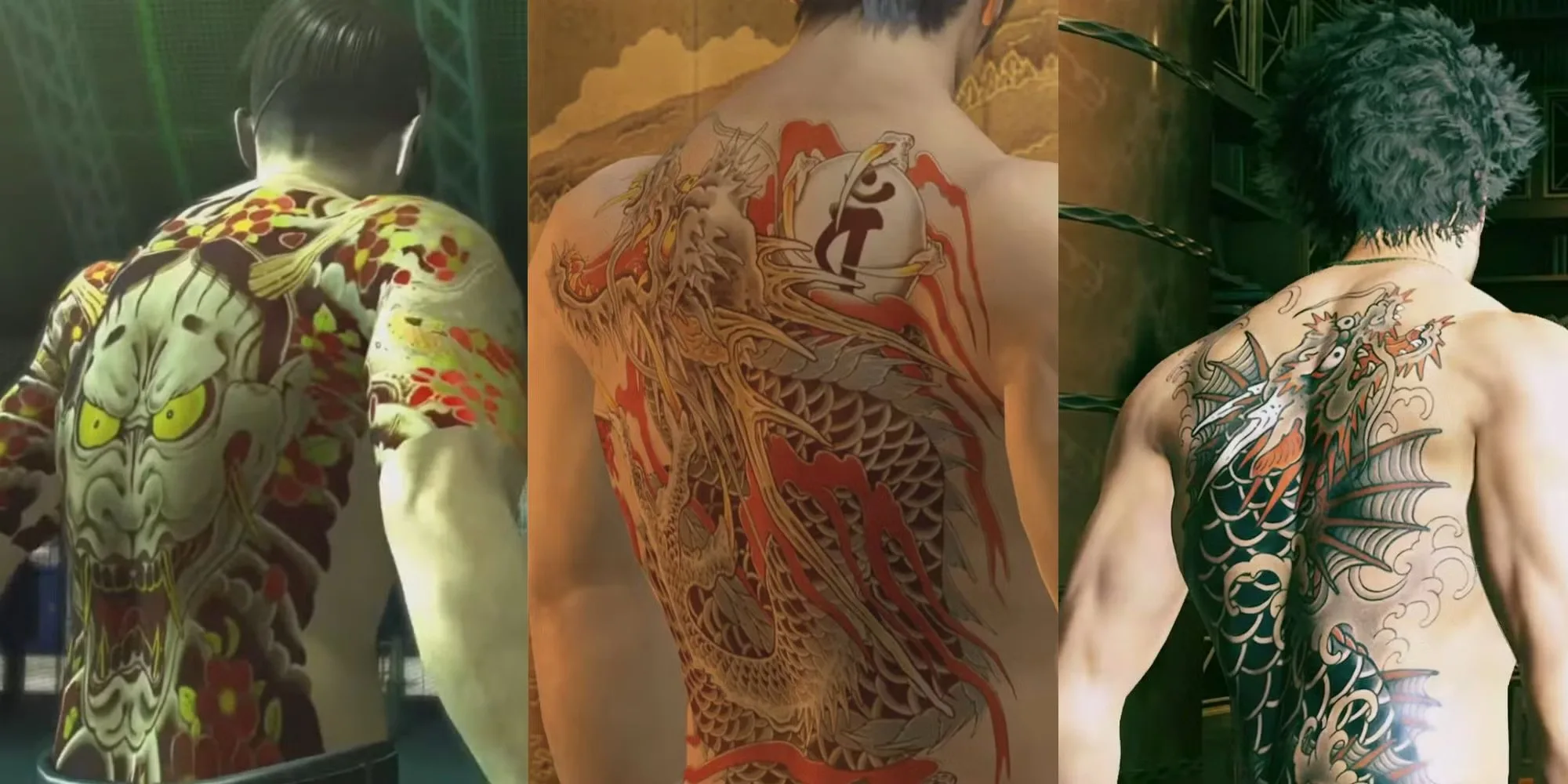Explaining Tattoos in Yakuza character
Mon,Mar 03 ,2025
In the Yakuza series (known as Ryū ga Gotoku in Japan), tattoos play a significant role in representing a character’s affiliation, status, and personal history, especially within the context of the Yakuza (Japanese organized crime syndicates). Many characters have tattoos, and they often carry deep symbolism related to the Yakuza culture. Below is a breakdown of the meaning behind the tattoos worn by the main characters, specifically focusing on the ones featured prominently in the series, like Kazuma Kiryu, the protagonist.
Kazuma Kiryu’s Tattoo

Location: Kiryu’s back.
Tattoo Design: Kiryu’s back features a full-body tattoo of a Koi Fish swimming upstream, and the tattoo is a significant symbol for him.
Meaning:
- The Koi Fish is a symbol of perseverance, strength, and determination in Japanese culture. The fish is said to swim up waterfalls, symbolizing the overcoming of challenges and obstacles in life. In the Yakuza context, this tattoo represents Kiryu’s resilience, his journey through adversity, and his determination to rise above the challenges he faces.
- The Koi Fish can also be a metaphor for his connection to the Yakuza world, which is known for its harsh rules and the idea of working toward greater heights, no matter how difficult the path.
Other Notable Tattoos in the Yakuza Series
-
Goro Majima’s Tattoo

-
- Location: Goro Majima’s back features a dragon tattoo.
- Meaning: In Japanese culture, a dragon symbolizes power, wisdom, and protection. For Majima, this tattoo represents his fierce personality and the violent nature that defines him. Dragons are often linked to the concept of guardianship, and for Majima, it can be seen as a symbol of his protective tendencies, particularly toward those he cares about, despite his chaotic and unpredictable behavior.
-
Shintaro Kazama’s Tattoo

-
- Location: Kazama’s back, similar to Kiryu’s.
- Tattoo Design: Kazama also has a dragon tattoo across his back, though its design is different from Majima’s.
- Meaning: The dragon here can be viewed as representing leadership, strength, and control. Kazama’s tattoo signals his position as a powerful figure in the Yakuza world, a man who commands respect and is a key player in the clan’s operations.
-
Hiroshi Kugihara’s Tattoo
- Location: His chest and back.
- Tattoo Design: Kugihara has a traditional Japanese dragon tattoo.
- Meaning: Like most Yakuza tattoos, Kugihara’s dragon is linked to his violent, unrestrained personality and his ambitions in the Yakuza world. The dragon on his chest and back symbolizes his brutal strength and his aggressive nature in fighting for power and status.
-
Osamu Arakawa’s Tattoo
- Location: Arakawa has a full-body Yakuza-style tattoo, which covers his back, arms, and chest.
- Meaning: Arakawa’s tattoos symbolize his deep connection to the Yakuza world and his role as a protector and father figure to Ichiban Kasuga (the protagonist of Yakuza: Like a Dragon). His tattoo represents loyalty, tradition, and honor, marking him as a man of deep convictions within the Yakuza society.
Symbolism of Yakuza Tattoos in General
In the world of Yakuza, tattoos are not just for decoration; they have significant meaning and are deeply connected to the culture, identity, and history of the person wearing them.
- Back Tattoos: A full-body tattoo, especially one that covers the back, is a sign of a high-ranking Yakuza member or someone with considerable respect in the organization. These tattoos often represent strength, protection, and the person’s connection to the criminal world.
- Dragons: Dragons are common symbols in Yakuza tattoos, representing power, mystery, and a fearsome presence. They can also symbolize someone who is a protector or has the ability to rise above challenges.
- Koi Fish: As seen with Kiryu, the Koi Fish represents perseverance and transformation. In the Yakuza context, the koi often symbolizes a member who has worked their way through the ranks of the organization, proving their worth and loyalty.
- Peonies and Cherry Blossoms: These flowers appear in some tattoos as symbols of beauty and fragility, often juxtaposed with the harshness of the Yakuza lifestyle.
- Tigers and Phoenixes: Tigers symbolize strength and courage, while Phoenixes represent rebirth and endurance. Both animals are used to symbolize different aspects of a person’s journey or persona.
In conclusion, the tattoos in the Yakuza series are rich with cultural and symbolic meanings. They reflect the personalities, struggles, and histories of the characters who wear them. The designs, from koi fish to dragons, embody perseverance, power, loyalty, and resilience, all values central to the lives of those involved in the Yakuza.




Comments